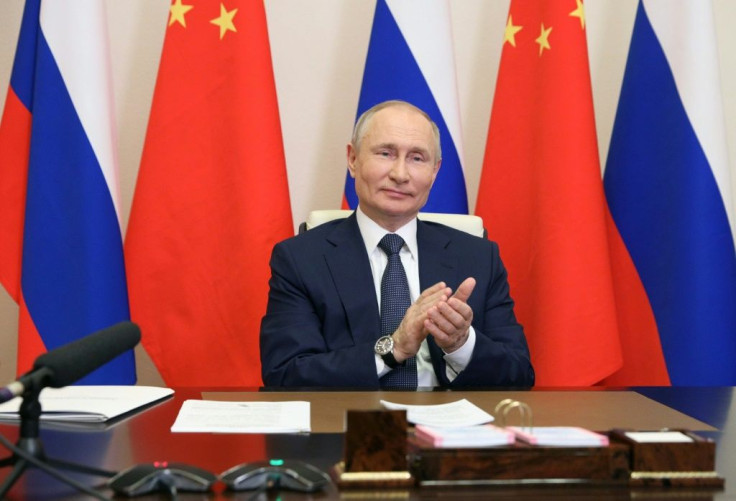Putin, Xi Hail Ties At Launch Of Work On Nuclear Plants In China
Russian President Vladimir Putin and his Chinese counterpart Xi Jinping on Wednesday hailed close ties between their countries as they launched via videoconference work on Russian-built nuclear power plants in China.
The heads of state initiated work on pouring concrete into new units of the Tianwan and Xudabao nuclear power plants.
Built jointly with Russia, the Tianwan plant has been operating since 2007, while the Xudabao station is still under construction.
"Russian and Chinese specialists are implementing a truly landmark flagship joint project," the Kremlin cited Putin as saying.
Describing the nuclear reactors as "powerful" and "modern", the Russian leader said that they "meet all safety requirements and the highest environmental standards".
He said that the new units will be functional by 2026-2028 and that Russia and China are prepared to further develop nuclear power plants through joint construction.

"We can say that Russian-Chinese relations have reached the highest level in history," Putin said.
China's Xi in his speech called nuclear energy a "strategic priority for cooperation" between the two countries, according to a readout of the event published by the Chinese foreign ministry.
Xi called for a "more equitable, balanced, inclusive, open and shared global energy governance system," adding that Beijing and Moscow should "play a constructive role in achieving global sustainable development goals."
Russia has sought influence and closer diplomatic ties via its nuclear power stations, which have a price advantage over Western competitors.
In recent years, Moscow has notably pushed for greater clout in Africa, signing preliminary agreements on nuclear projects with a host of countries including Egypt, Nigeria and Sudan.
With a view to that policy, the Czech government last month said it would eliminate Rosatom from a multi-billion-euro tender to build a new nuclear unit after accusing Russia's secret services of being behind a fatal explosion on Czech territory in 2014.
© Copyright AFP {{Year}}. All rights reserved.





















